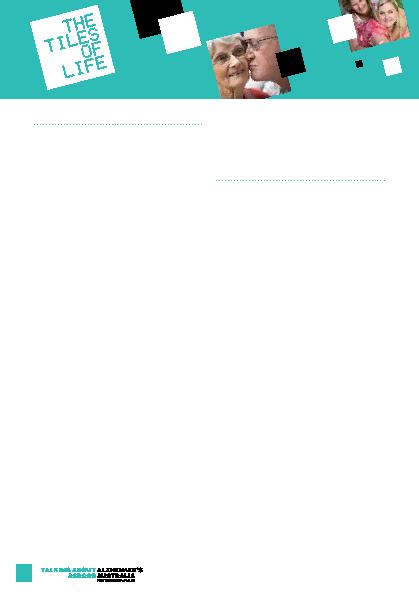
Griffith Health Institute Research Centre for
Clinical and Community Practice Innovation,
Queensland Australia
and not always espoused in aged care. Adding
to the complexity is when the older person has
a diagnosed dementia. Older people, including
those with dementia, are often presumed to
remain single, if they have been widowed, and
heterosexual, if they have been their whole life.
Feelings of disbelief and disapproving attitude
can surface when families are informed of
changes in their older relative after entering a
care facility. This paper presents the findings of
a descriptive exploratory study that examined
the perceptions of older people and families
towards expression of sexuality in aged care.
Qualitative semi-structured interviews were
conducted with (a) 23 older people, some with
early stage dementia, either residing in aged
care facilities or recipients of community aged
care; and (b) 27 families whose older relatives,
with or without dementia, received aged care
services. Incongruences in older people and
families' views on sexual expression, sexual
needs and behaviour were found. Families
have generally regarded sexual expression
as an activity that should be discouraged and
curtailed particularly if their older relatives
have dementia. On the other hand, some
older people have internalised the ageist and
heterosexual values of society and resultantly
found it difficult to express or discuss their
sexuality because of perceiving it to be
inappropriate and unacceptable. A care
who support and nurture the expression of
sexuality is advocated to improve quality of life
and care outcomes for older people especially
for those with dementia.
ACH Group
our individuality and contribute our talents
in society. We become social citizens by
expressing our abilities, thoughts and hopes
through visual arts, poetry, music, dance
and drama in the community. By including
people living with dementia in the arts we
have the opportunity to share perspectives,
to find creativity, to demonstrate abilities and
contribute to communities.
participation by people with dementia, to adapt
our approach and methods to suit their needs
and interests and to build community so that
they are supported, encouraged and inspired to
make their mark in the arts.
to inclusion through the arts for people with
dementia developed in ACH Group. Colourful
case studies will be presented of public art
works, choirs, performances and poetry that
have inspired people with dementia to learn
new skills, regain past interests and gather the
courage and self belief to create and live with
hope. By involving community artists, offering
training, collaborating with local communities
and schools, a number of ongoing programs
inclusive of people with dementia have
demonstrated how to go beyond art therapy